There are lives that don’t follow a plan, but a spark of intuition. Lives that suddenly change course with the kind of wild courage that knows happiness can’t exist if you give up on what makes your eyes light up. MegiBulla, known to many as @labibliotecadidaphne, followed the quiet voice of books when everything else told her to stay in the right lane, the safe one. She left a job in an engineer study and created a social media profile almost as a game, without showing her face, with modesty and hesitation. But that game became a home. A home filled with readers, shared emotions, and stories that intersect.
Today, she is much more than a content creator: she is an editorial curator, a writer, a storyteller of both real and fantastical worlds, a woman who has built, book by book, a new way of expressing herself, and helping others feel less alone. Her voice, honest, imperfect, human, has become a beacon in an age obsessed with polished surfaces. She, instead, shows herself as she is: messy-haired, tired, happy, in pajamas, in a chaotic house, with a heart full of words to share. In this conversation, she spoke to us about the past that shaped her, the present that keeps surprising her, and the future she dreams of with the wide eyes of a child raised among abandoned rooms and imagination. A woman who, with every book read and recommended, has learned one simple and powerful truth: to be enough for oneself. And at the same time, to belong.
Given the context we’re in, the first question has to be about SalTo: what are your expectations, how do you feel
Expectations are always hard to imagine or predict. I try to keep my feet on the ground and tell myself: “Oh God, what if it doesn’t go well? What if the books I brought don’t sell? What if the community isn’t happy to see me…?” What I do expect is to come away from it with a strong sense of nostalgia—that happens every time, no matter the SalTo. Even though I’m exhausted while I’m here, I always end up crying when I leave. So if there’s one thing I know for sure, it’s that I’ll miss the fair as soon as it ends.
If you look back now, to the Megi who left engineering to fully dedicate herself to the world of reading, what do you think about the journey you’ve taken and how you’ve changed over time?
You’re trying to make me cry (laughs). It’s been chaotic, unpredictable, and in some ways dreamlike. I could never have foreseen it: I was working in an engineering studio when I opened my social media account. At first, I was even careful not to show my face, afraid someone I knew might recognize me. Then everything happened so unexpectedly. At one point, I actually deleted the app because I told myself, “You’re 26 and you’re making TikToks like a teenager.” So I deleted it. But two months later I missed making videos—not because I wanted to reach anyone, but because it made me feel good. I was sharing my books. My husband said, “Why do you care what people think? Just redownload the app.” So I did. Six months later, we were 100,000 strong. It’s been a beautiful journey. Honestly, if someone had told me back then, “You’ll have your own book series, you’ll be in bookstores,” I never would have believed it. In fact, when my husband said, “Can you imagine if you get to 1,000 followers and get to work with a publishing house?” I answered, “Don’t ruin this for me with your expectations” (laughs).
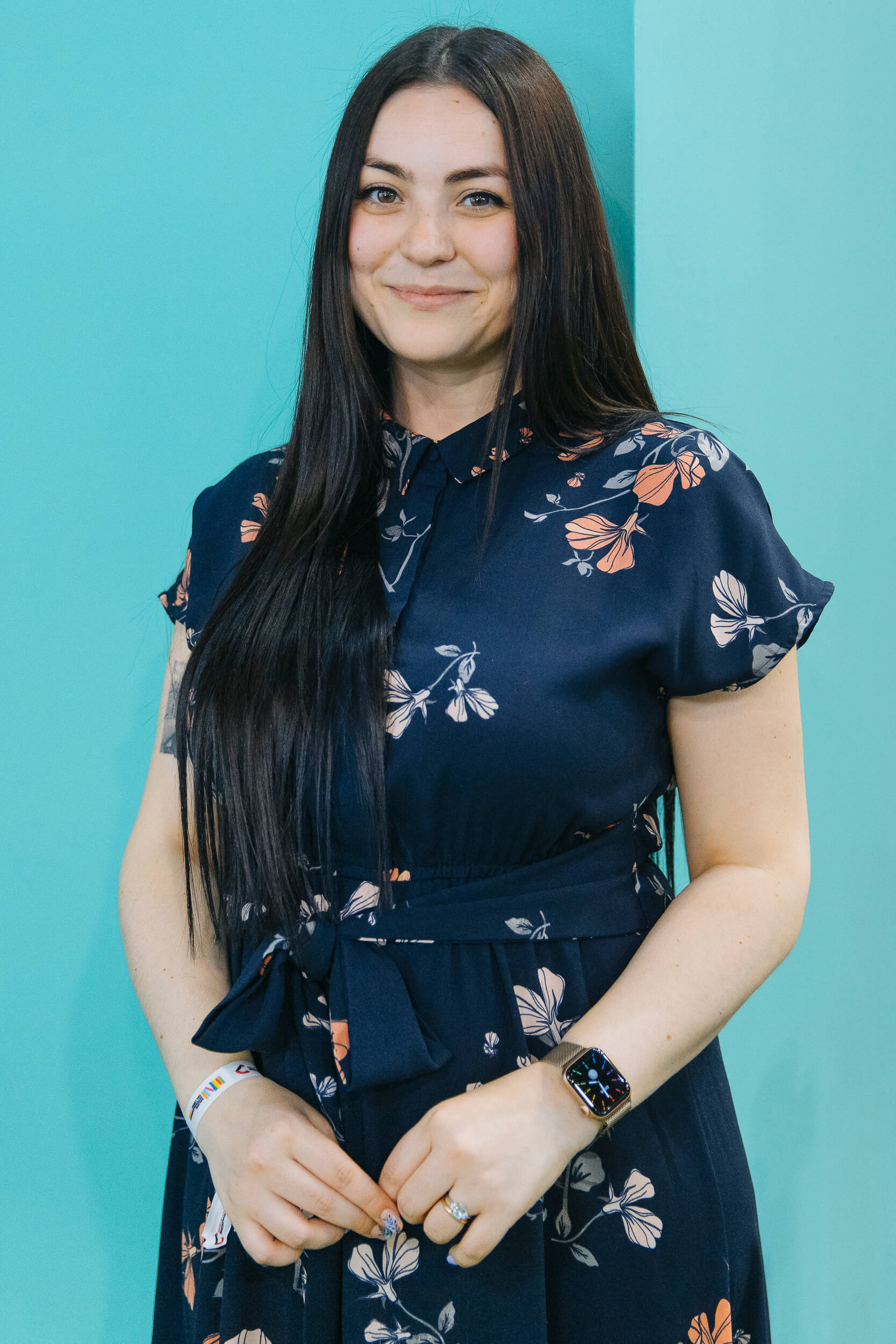
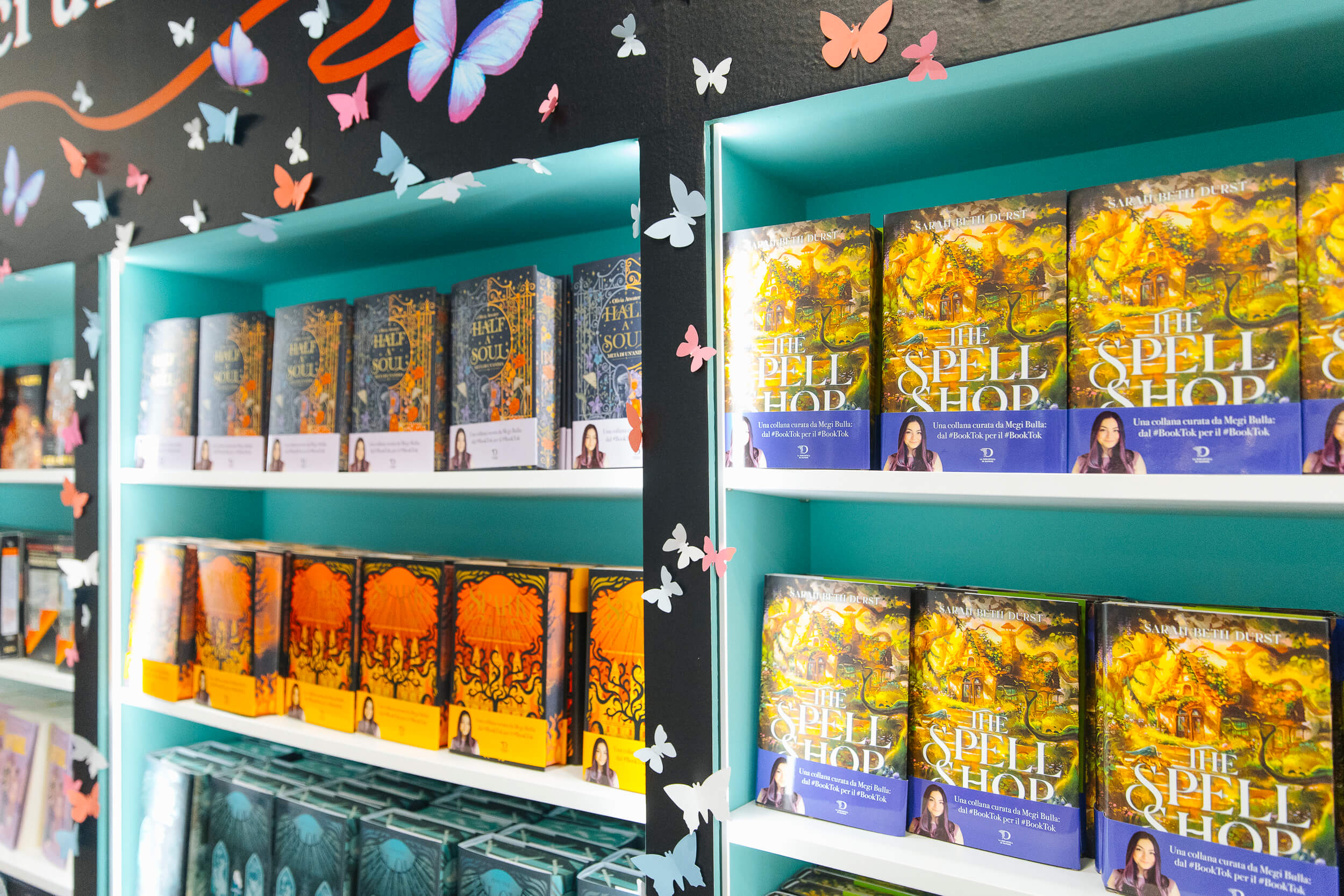
Today, how do you experience your relationship with your community, one of the biggest for book lovers in Italy?
Very informally. People always say I remind them of the girl next door, the one you might run into at the grocery store, and to me, that’s the best compliment ever. I show up with no makeup, in my pajamas, with a messy house—and I think that was the key early on, at a time when social media only showcased perfect lives. Mine isn’t perfect at all. Maybe it’s a little better now than it was a few years ago, and that’s thanks to the community. When people see me, they say, “Meg, guess what book I bought?” Because we’re used to chatting that way, on Instagram and elsewhere. It’s a very informal relationship, no hierarchy—I’m just a spokesperson connecting them to each other. They even have their own Telegram groups where they meet up and do whatever they want (laughs).
There’s a lot of love between us—we keep doing each other good, and I feel like I belong to them just as much as they belong to me.
Has your passion for reading evolved thanks to social media? Has it expanded or changed in any way?
Definitely. I used to read only fantasy, and it was through engaging with the community that I got into romance, which I hadn’t read at all before. Then I moved on to classics and especially literary fiction, which had always felt distant to me.
Let’s talk about the series you curate for Rizzoli, “Biblioteca di Daphne”: how’s that journey going? How do you manage the process from selecting a foreign title to its publication in Italy?
It’s a job that involves coordinating multiple teams. There’s a team for each aspect, and I interact with all their representatives. Every time we meet, I try to understand where we’re at, what we can do, and I have a different relationship with each of them. Some I talk to at the start, others at the end, and some only after the book is out—like the marketing team. It’s a very dynamic process. It starts with me flagging a title. It then goes to the rights department, which checks availability and handles acquisition. Once they say we can buy it, it’s sent to a reading team. If their feedback is positive or average, I read their report, and if it intrigues me, I read the manuscript myself. I usually read three or four manuscripts at a time. If I like one, we make an offer and try to acquire the rights. Sometimes there’s an auction with other publishers. But once it’s ours, that book feels like it’s “home.”
Then we decide: what do we want to do? Who should translate it? The chief editor reaches out to potential translators to check availability, and meanwhile, I contact the graphics department to decide whether to keep the original cover or create something new. If we create something new, what should it be? Which illustrator should we use? It’s a lot of work (laughs).
When the Italian text arrives, I reread and revise it—not because I have technical expertise, but because I choose books I would personally want to read. So I give it one last pass from a fan’s point of view. Sometimes sentences are grammatically correct but just don’t hit right for an Italian reader. For example, in “Glow of the Everflame,” he says “Make me,” and the translator chose “Perché non mi convinci?”—which is correct, but the Italian romance reader wants “Costringimi,” which makes you squeal (laughs). That’s my job: making a book fully satisfying for readers who love the genre.
And I’ll never stop saying this: I work with a team that brings me so much joy. They support everything I propose. “Ai confini del fiume Stige” is about grief, written for young people—it’s not an easy book to publish in Italy, but they said, “We believe in it.” It’s a debut, and the author hadn’t even promoted it abroad. So we took a chance. “Out on a Limb” is a romance with a pregnancy trope—something most romance readers hate—and both protagonists are disabled. And yet, it was adored. I can count on a team that, even when my ideas are a bit wild, always says, “Let’s try.” They’ve never said no. They always say, “Let’s try,” and in the end, we always make it work.
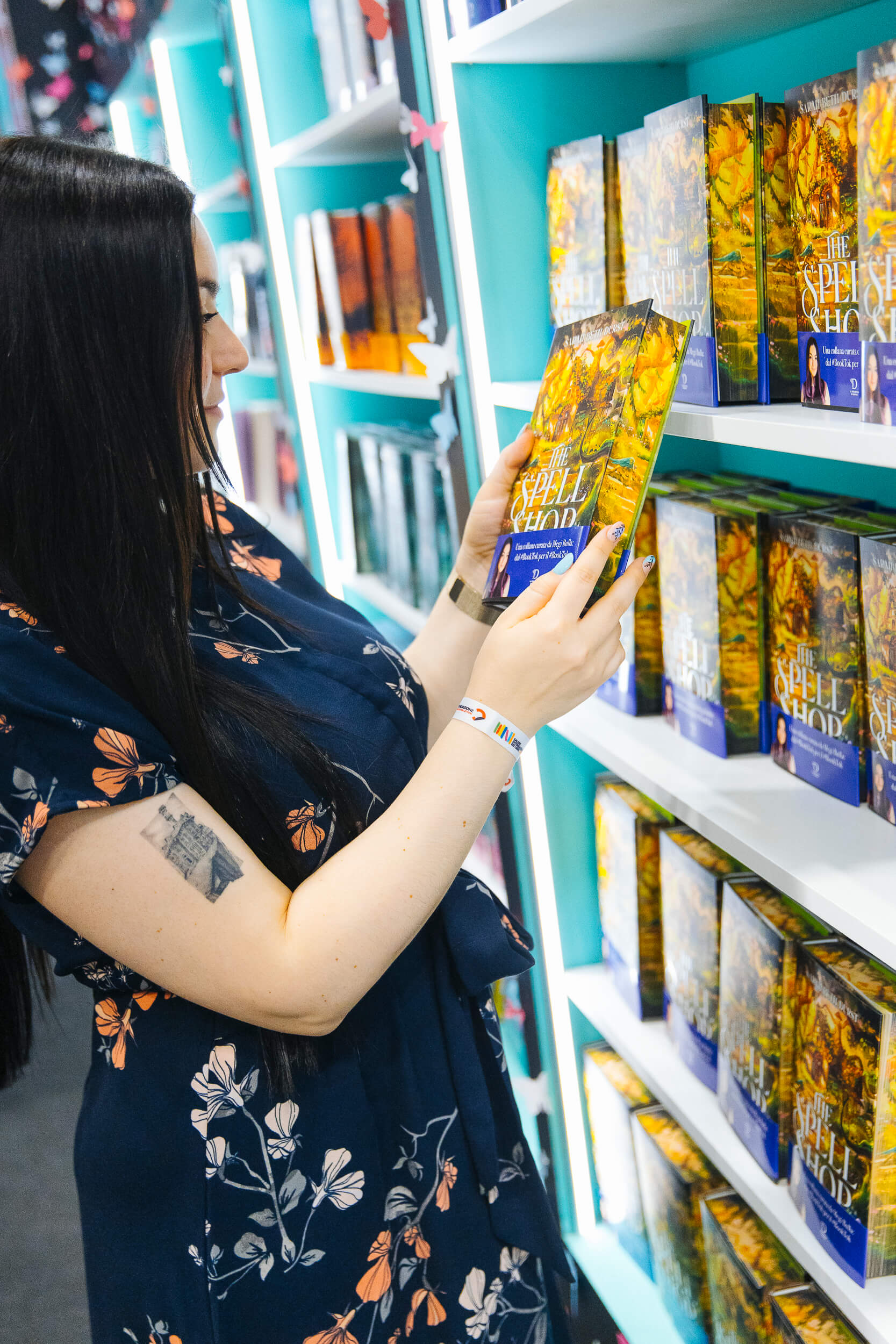
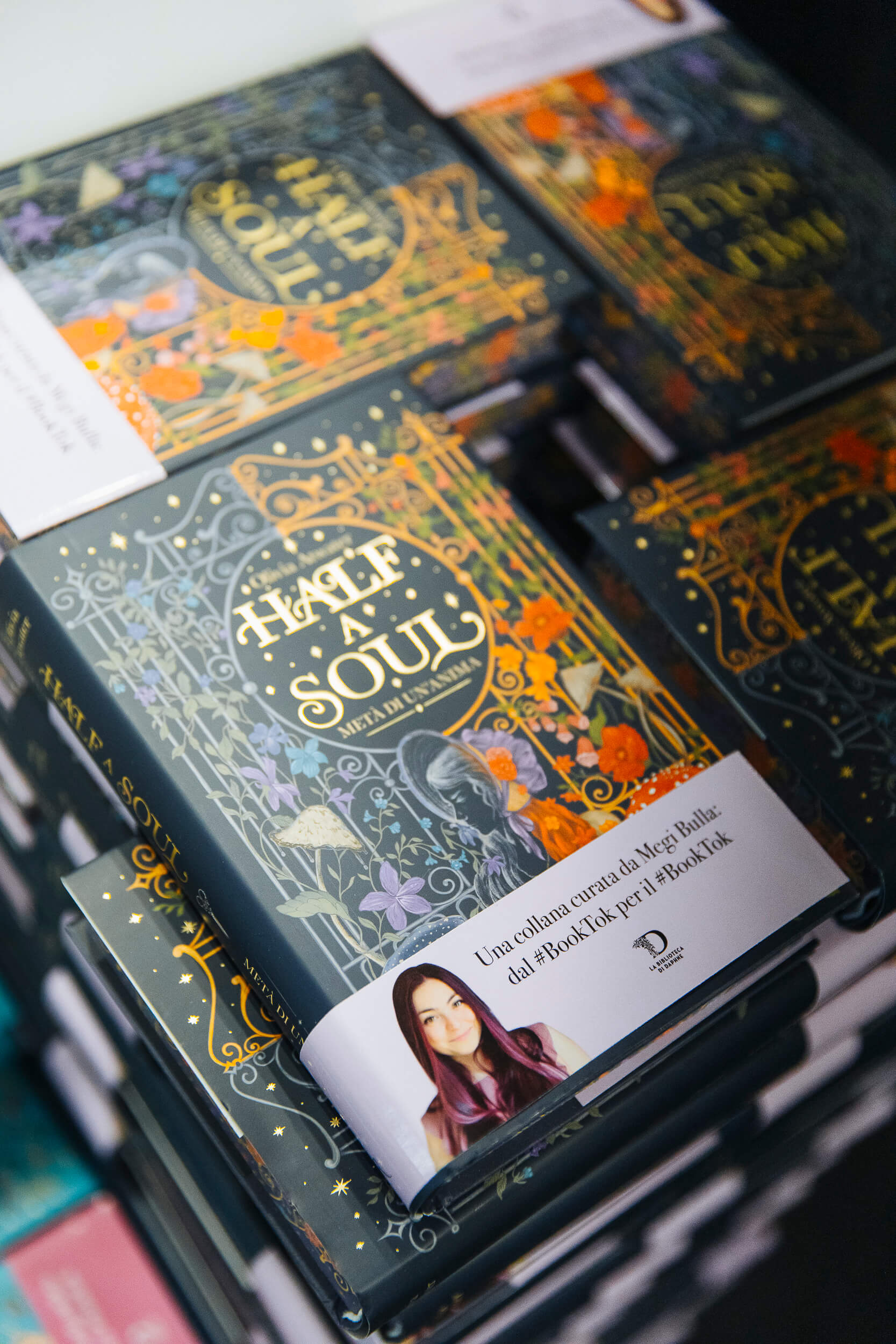
“That’s my job: making a book fully satisfying for readers who love the genre.”
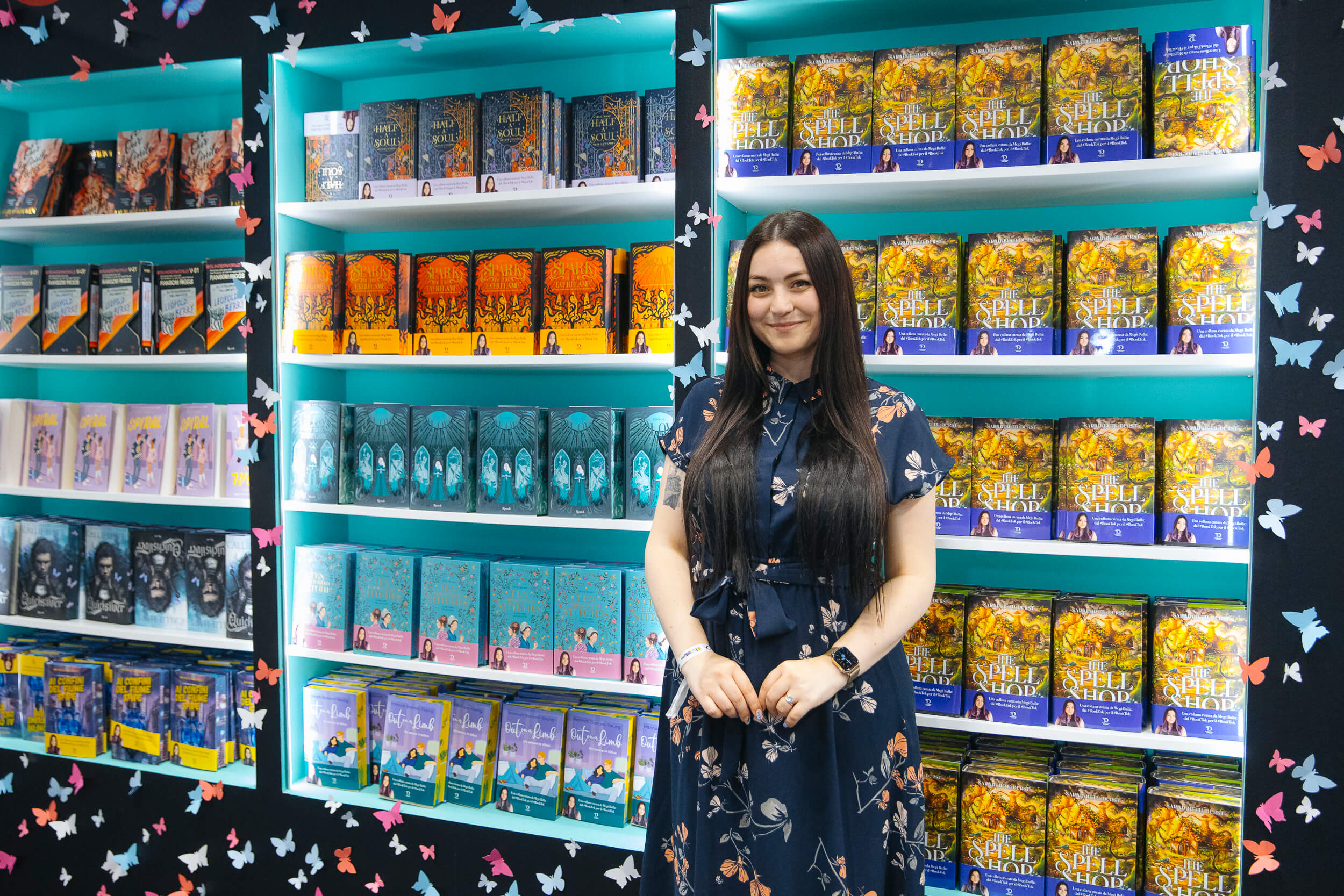
Curator, content creator, discussion host, moderator, and author of “Milena – Insegnami La Felicità”, what’s next? Any other dreams?
My second book comes out this fall, so for now, my dream is just for everything to go as it should. It’s very different from “Milena”, aimed at an older audience, and it talks about me and my childhood. I grew up in an abandoned hotel, and that inspired this new story, which is very autobiographical. Of course, it’s fictionalized and with a magical element, but everything else—the characters, the places—is real. It’s the story of me and my neighbor, spending afternoons playing in the empty rooms of that hotel. My family comes from very humble beginnings, and we lived in this huge abandoned hotel where only one room had heating. So we all stayed there, and the rest of the place was cold and empty. My neighbor and I would go explore those rooms and pretend we were the owners. In the book, Matilde and Jago (who is a dragon) will go through those doors and instead of finding empty rooms, they’ll discover whole new worlds.
On a personal level, books are often a help when it comes to mental health. Emotionally, what does reading mean to you?
Without reading, I wouldn’t even be half the person I am. My empathy was born between the pages of books, and it’s hard to explain, but reading is what makes me who I am.
Fantasy and romantasy are your favorite genres, too—what’s your favorite title or saga in this genre?
I recommend “The Mirror Visitor” quartet. I think it’s one of the best fantasy series of the last decade.
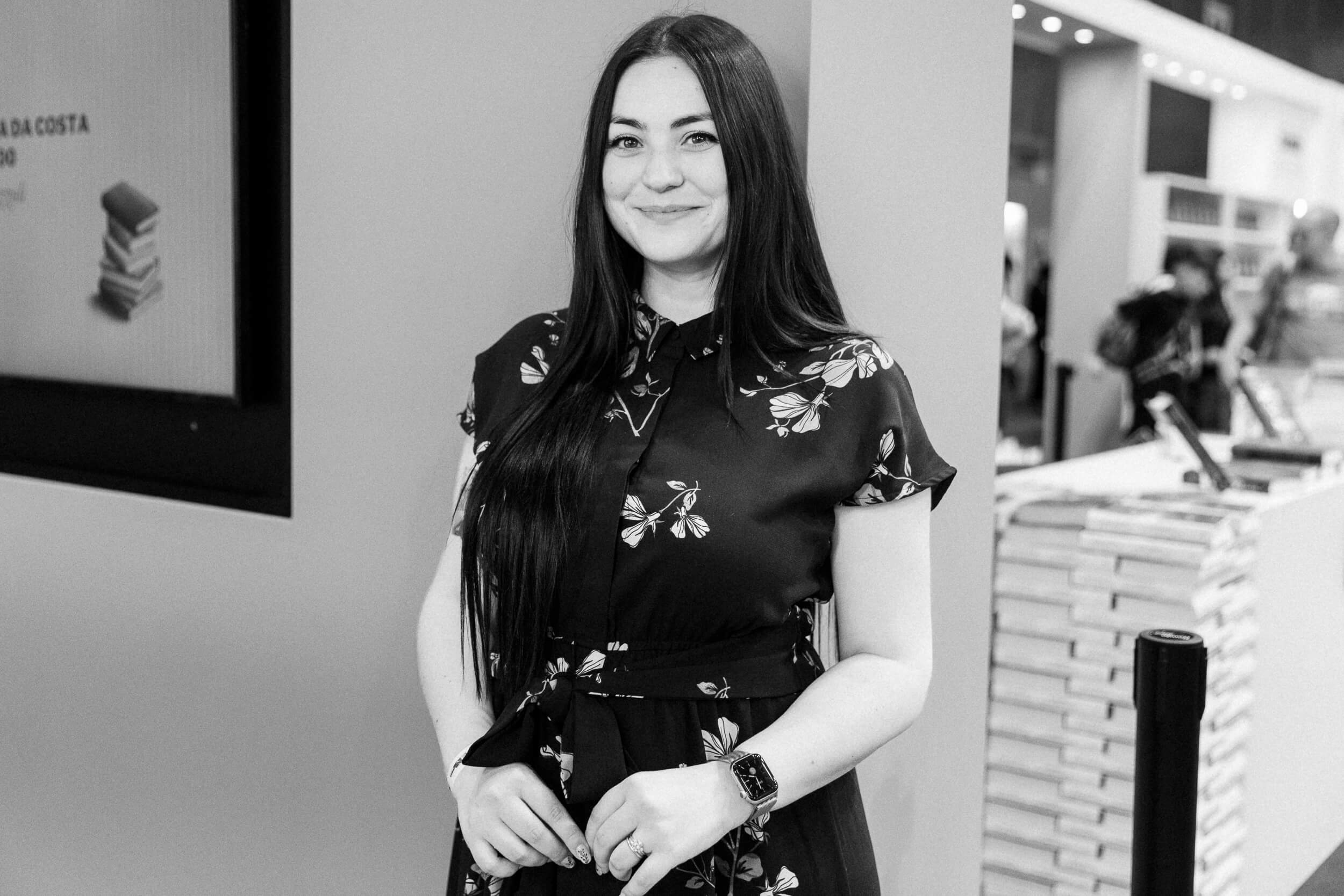
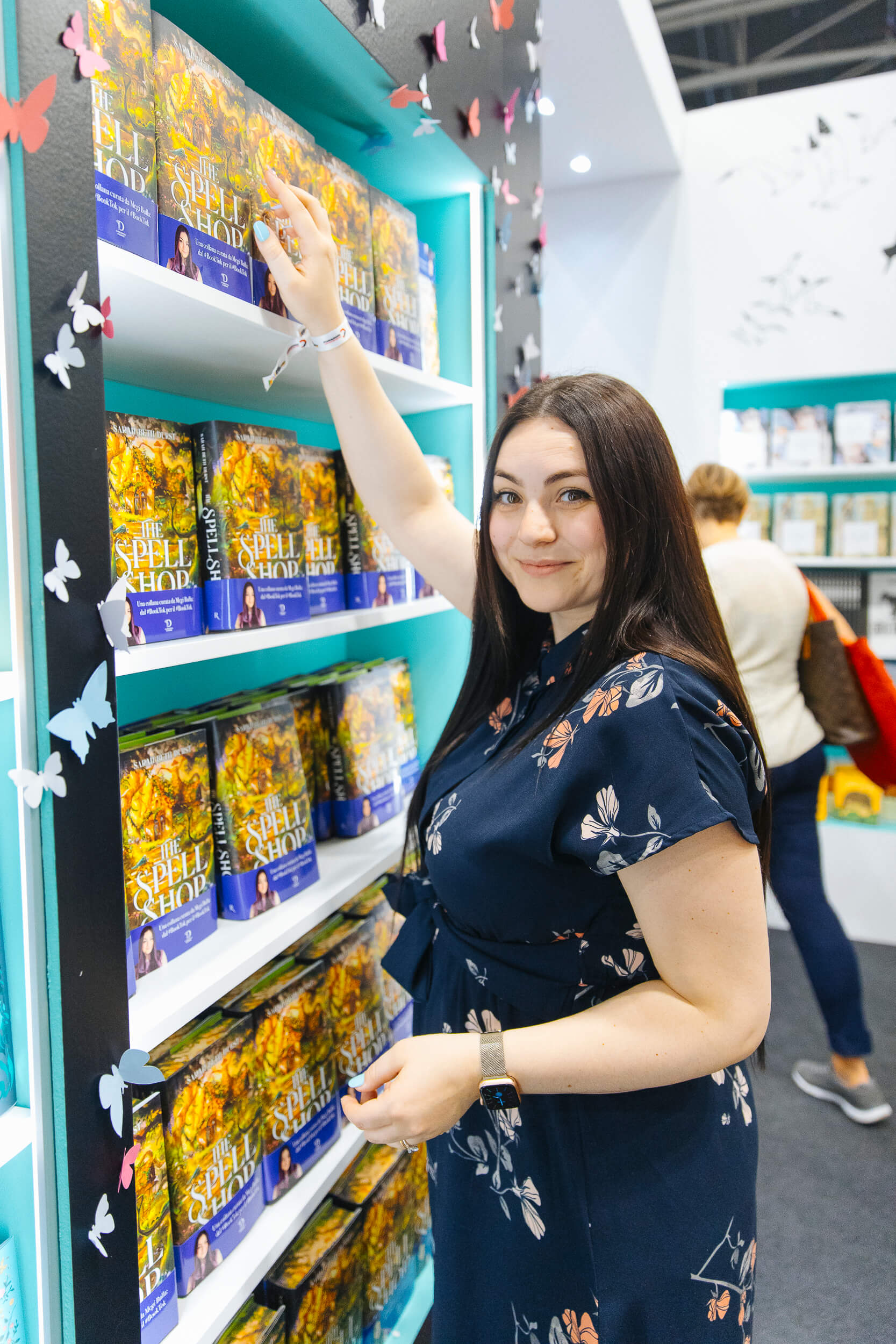
“Without reading, I wouldn’t even be half the person I am.”
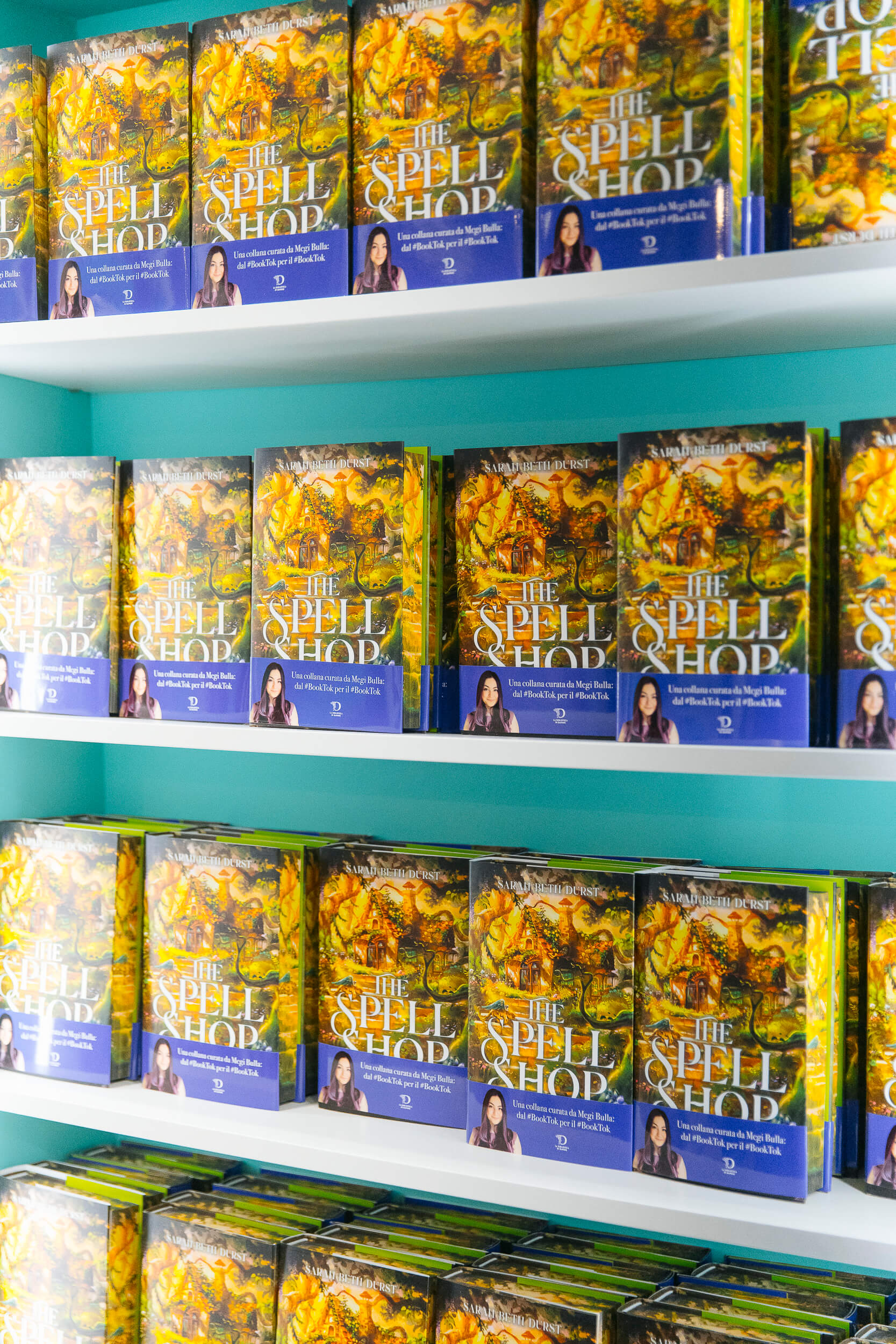
What book(s) are on your nightstand right now?
Manuscripts (laughs).
What does it mean to you to feel comfortable in your own skin?
It’s a process that comes after years of self-questioning and doubt: Am I good enough? Can I do more? And if I do more, will I come across as arrogant to myself or others? I think the key is surrounding yourself with people who encourage you to believe in yourself. For me, that person is my husband. So feeling comfortable in my own skin means constantly challenging myself, knowing that if I fall, someone will be there to catch me.
What’s the last thing you’ve discovered about yourself thanks to your work?
That I am enough.
Your happy place?
My mountains. I’ve lived in Trentino for as long as I can remember, and when I leave for too long, I can’t breathe.
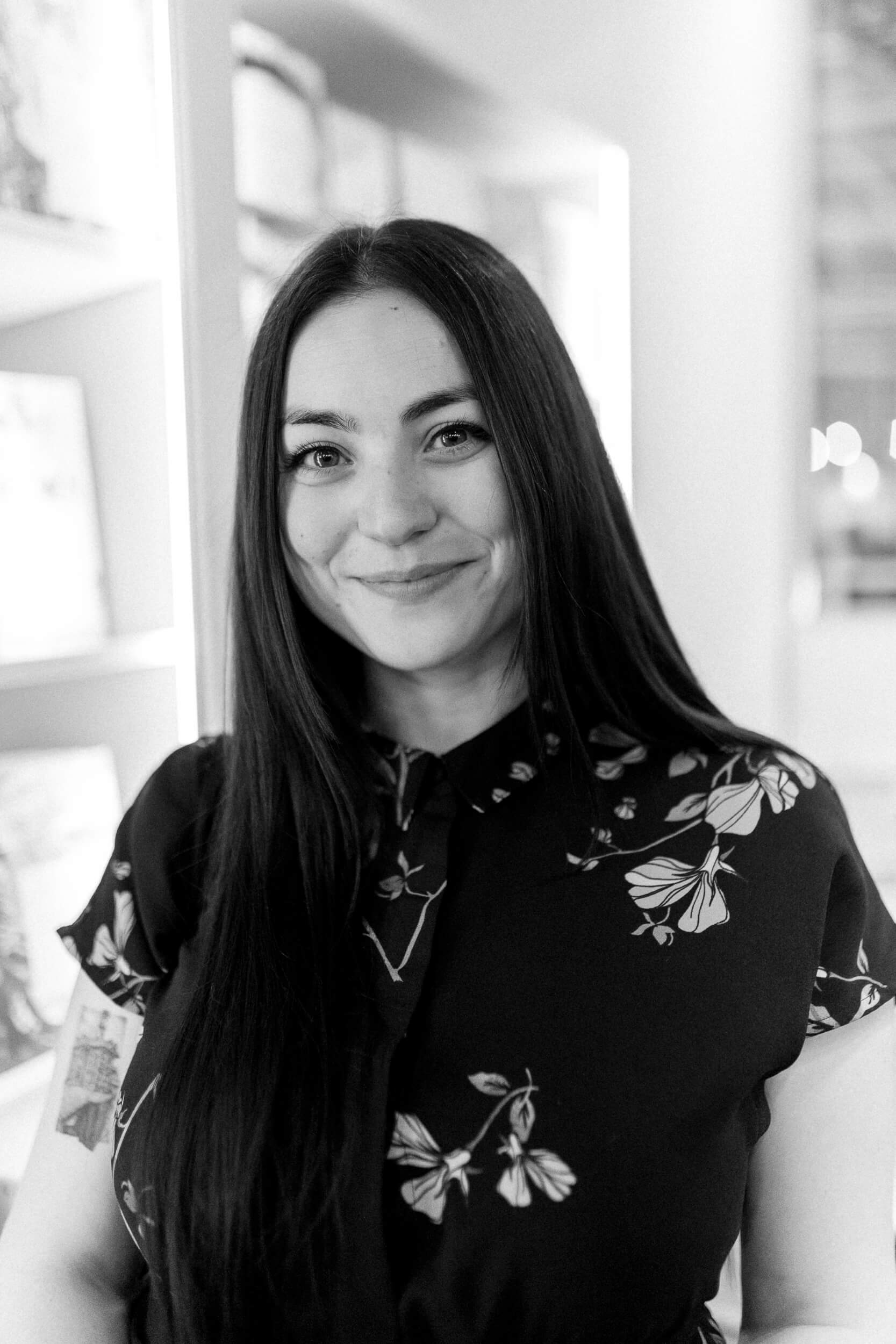
Photos by Luca Ortolani.





